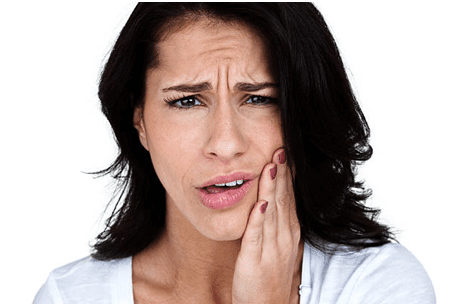Everything You Need to Know About TMJ Disorders

Does your jaw make odd noises when chewing or speaking? Or perhaps you wake up with headaches and tender jaw muscles. What about popping when you open or ear pain? All of these and more are symptoms of temporomandibular joint disorder, or TMJ disorder.
TMJ disorders are a set of disorders that involve the improper function of temporomandibular joint, which is the joint that connects your jaw to your skull. These joints are located in front of both your ears and tend to be complex, making them susceptible to injury and musculoskeletal disharmony.
Here’s everything you need to know about TMJ disorder, from causes to diagnosis and treatment!
What Causes TMJ Disorder?
Although it’s not exactly known what causes the onset of TMJ disorder, there are potential factors that can influence whether or not someone will develop the disorder. You may have had a traumatic injury or accident to your face that could lead to TMJ disorder. TMJ disorder could also happen as a result of an improper bite, or the malalignment of your back or neck.
Bruxism, or teeth grinding, is also an influential factor of TMJ disorder. When you grind your teeth, immense pressure is placed on your jaw, even more pressure than chewing food! Stress, arthritis, and even gum chewing have all been linked to TMJ disorder.
Symptoms of TMJ Disorder
The symptoms of TMJ disorder aren’t always conventional. Of course jaw pain, muscle stiffness in the face and neck, and headaches are some of the most common symptoms. But did you know that ear pain is frequently a symptoms of the disorder?
Jaw noises are another very common symptom. These noises could range from clicking and popping whenever you chew, speak, or simply open your mouth, to grinding noises from the joints. Also, people often suffer from mild to severe headaches as a result of TMJ disorder. Finally, your jaw may even lock open or closed. These are all symptoms of TMJ disorder!
Your Dentist Is the Best Doctor to Diagnose TMJ Disorder
Because TMJ disorder has so many symptoms that mimic other health problems, the disorder is often misdiagnosed when patients see their primary care doctor. Although seeing your doctor for any health issues you’re experiencing is crucial, it’s also important to not overlook your dentist. Dentists are the best doctors to diagnose TMJ disorder because they’re experts at oral health and are familiar with the symptoms of this common problem, which affects millions of Americans.
Your Asheville dentist can examine your joints and listen for any noises you may not be able to hear. He or she will ensure your jaw works properly and examine your bite. Dental X-rays may be recommended in order to better see your temporomandibular joints, and possibly even an MRI or CT scan in order for your dentist to see the whole picture.
What Treatments Are Available?
Your TMJ disorder can be treated based on what your oral health care professional believes is causing the problem. You may need orthodontic treatment to correct an improper bite to experience relief from your symptoms. A custom mouth guard may be beneficial if bruxism is determined to be the likely cause of your TMJ symptoms, as well as to further protect your teeth from the damage of teeth grinding. Physical therapy is needed if the your TMJ disorder is a result of an improperly aligned back or neck. In severe cases, you may need surgery to correct the trauma that has impacted your temporomandibular joints. Your dentist in Asheville may also suggest that you use a warm compresses, antiinflammatory medicaton and transition to a soft diet.
TMJ disorder can greatly impact your quality of life. Although some patients experience mild symptoms, others will suffer from migraines and severe jaw pain. There is help for your TMJ disorder. Visit us or contact us to make an appointment Dr. Saunders can properly diagnose and treat your TMJ disorder and provide relief from your symptoms!
